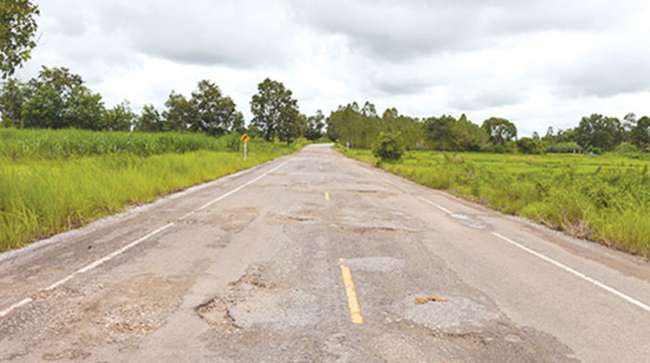Senior Reporter
House Lawmaker Introduces Rural Infrastructure Bill

[Stay on top of transportation news: Get TTNews in your inbox.]
Legislation meant to assist rural transportation corridors was introduced this month by Rep. Carol Miller.
The Reinvesting in Essential Partnerships And Infrastructure for Rural America, or REPAIR, Act, would aim to reduce regulatory requirements for rural communities while seeking to provide flexibility for reallocating funds to non-urban areas.
Additionally, the bill would look to enhance mobility options that would facilitate commutes to work and health care facilities, according to background from the congresswoman’s office.
“America’s small towns are the backbone of this country and are in need of a substantial transportation infrastructure overhaul,” Miller (R-W.Va.) said Dec. 4. “I’m introducing the REPAIR Act to ensure that all Americans living in rural communities have better access to hospitals, schools, jobs and other communities. This important legislation will help revitalize rural economies, strengthen our roadways and connect our small towns.”

Miller
Miller is a member of the Transportation and Infrastructure policy committee. The bill was referred to the panel for consideration.
Miller’s Republican colleagues on the committee backed the bill. For several years, the GOP caucus in the House, as well as many Democrats, have sought to highlight priorities for rural areas, such as the need for broadband and mobility options.
Rep. Sam Graves (R-Mo.), the transportation panel’s ranking member, insists future negotiations on the next federal highway policy bill need to prioritize streamlining permitting regulations, as well as address rural infrastructure programs.
Earlier this year he unveiled legislation that sought to expand broadband access across the rural landscape. “With North Missourians currently being asked to stay home due to the global COVID-19 pandemic, the necessity of access to broadband service is more clear than ever,” Graves said at the time. “Completing the ‘last mile,’ in particular, is critical to ensuring that rural Americans are able to access high-speed internet.”
He added, “Looking beyond the nation’s current health emergency and toward our economic recovery, providing more avenues to develop broadband will also help these communities attract more jobs and business.”

In this special two-part year in review, we look at the technology and regulatory developments that will help you and your business in 2021. Transport Topics Reporter Eleanor Lamb and Managing Editor for Features Seth Clevenger discuss HOS, software, equipment and more. Hear a snippet, above, and get the full program by going to RoadSigns.TTNews.com.
On the Senate side, Commerce Committee Chairman Roger Wicker (R-Miss.) recently introduced a bill that would establish a pilot program that would assist rural communities and municipalities with utilizing U.S. Department of Transportation financing tools.
Wicker’s Rural Infrastructure Advancement Act would authorize funding to establish a five-year pilot program designed to help agencies with financial, technical and legal assistance. The bill also would direct the department to proceed with an online presence for receipt of pilot program applications, as well as issue notices regarding each application. Wicker’s bill also would direct the department to post online details about the application process, and the status of submitted applications.
“This bill would provide professional technical assistance to rural communities interested in utilizing existing financing programs. It is important that we provide these resources to support and advance rural infrastructure,” said Wicker. The committee has jurisdiction over freight transportation.
Last year, the U.S. Department of Transportation launched the Rural Opportunities to Use Transportation for Economic Success, or ROUTES. The initiative is meant to expand access to freight and passenger corridors along rural places, as well as enhance grant funding, loan programs, data sharing and transit service in those rural areas.
Transportation Secretary Elaine Chao has called for advancing efforts to highlight concerns across rural transportation corridors. Earlier this year, the secretary told a Senate panel: “After a period of great neglect, we are finally beginning to address the needs of rural America.”
Want more news? Listen to today's daily briefing:
Subscribe: Apple Podcasts | Spotify | Amazon Alexa | Google Assistant | More




